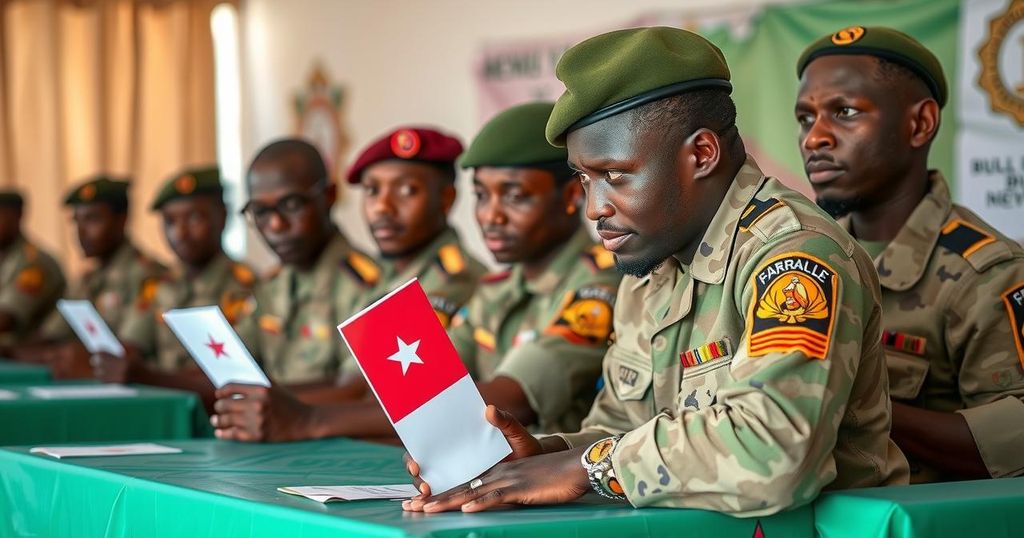Chad conducted a general election amidst a boycott from opposition groups, resulting in a low voter turnout of about 38 percent. The election was intended to mark the end of military rule, but many citizens expressed skepticism regarding its legitimacy, criticizing pre-determined outcomes and voicing disillusionment with the electoral process. President Deby, urging participation, faces fierce opposition amid regional instability and prior claims of fraud.
Chad held a general election on Sunday, which the government claims is a crucial step towards ending three years of military rule. However, voter turnout was projected to be low, due to a boycott call from the opposition. Reports indicated a turnout of only 38 percent for the elections meant to establish a new parliament, local councils, and provincial assemblies. Election officials cited “cold weather” as a contributing factor to voter apathy, although opposition leaders maintain the outcome had already been predetermined, discouraging participation.
Success Masra, leader of the opposition Transformers party, proclaimed that most voters adhered to the boycott, indicating a conscious refusal to participate in a process they deemed unjust. This boycott creates a clear path for candidates allied with President Mahamat Idriss Deby Itno, who assumed power through military means in 2021 and subsequently faced allegations of electoral fraud during a presidential election in May.
In a bid to galvanize participation, President Deby urged citizens on social media to vote en masse, asserting the day bore historical significance. While he portrayed the election as a democratizing step, skepticism was voiced by citizens. Various attendees articulated feelings of futility regarding voting, suggesting a general disillusionment with the electoral process. One voter, Herve Natouingan, expressed his belief that such an election lacked genuine value, stating, “there’s no real voting in Chad”.
Amidst these sentiments, some citizens, like Patrice Lumumba Deoumoundou, hoped for reforms that would enhance employment and justice in Chad. Notably, the election was marked by the participation of military personnel and nomads who had cast their ballots in advance due to logistical concerns. Observers noted that voter registration among the military and nomads reached figures of over 72 percent and 54 percent, respectively.
Polling stations remained open until the evening, pending the monitoring of foreign observers and representatives from political parties. However, the opposition Democratic Party of the Chadian People raised alarms regarding discrepancies such as the disappearance of ballots, calling for vigilance against alleged fraudulent activities by ruling party networks.
These elections unfold against the backdrop of regional instability, including persistent threats from Boko Haram and diplomatic frictions with France. The current government frames these elections as the concluding phase of Chad’s transition to democracy since the previous thirty-year rule of the late president. In light of these complexities, the election process reflects deep-rooted tensions regarding leadership legitimacy and citizen engagement in Chad.
The article discusses Chad’s first general election following a three-year period of military governance. It addresses significant concerns surrounding voter participation and legitimacy due to a boycott led by opposition groups, aiming to highlight the dissatisfaction among the populace regarding the electoral process. The context of ongoing conflict and governmental legitimacy issues frames the electoral landscape in Chad, complicating the transition to democratic governance.
In conclusion, Chad’s recent general election was marked by low voter turnout and significant skepticism from the populace, largely stemming from an opposition-led boycott. Despite the government’s characterization of the election as a pivotal step towards democracy, citizens expressed disillusionment and concerns over the legitimacy of the process, further compounded by regional instability and prior allegations of electoral fraud. This election illustrates the complex challenges faced by Chad as it navigates its political landscape after military rule.
Original Source: www.communitynewspapergroup.com






